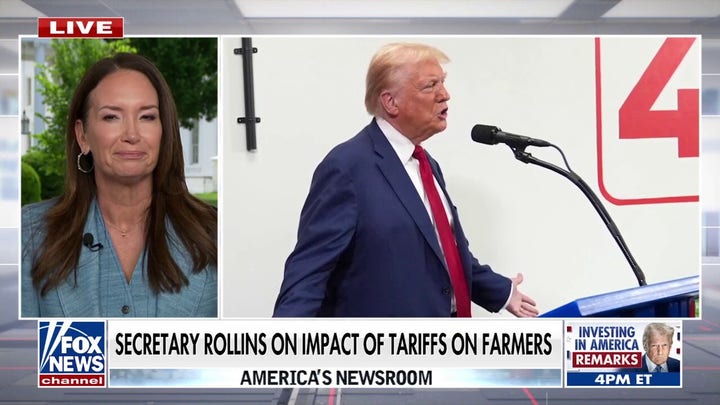The Senate failed Wednesday to pass a resolution rejecting President Donald Trump’s ‘Liberation Day’ tariff agenda, as several Republicans signaled beforehand they favored halting the relatively new levies, and Vice President JD Vance was called in to break an ensuing procedural tie.
The disapproval resolution failed 49-49, with three Republicans joining all Democrats present in attempting to throw a wrench in Trump’s tariff plans.
After that, Senate Majority Leader John Thune, R-S.D., put forward a motion to reconsider the resolution, then moved to table – or kill – the initial motion, which procedurally would prevent Democrats from forcing such a vote again.
That vote also deadlocked, but after about 80 minutes, Vice President Vance cast a tie-breaking vote in his dual role as president of the Senate.
Sen. Ron Wyden, D-Ore., had introduced the resolution to end Trump’s ‘national emergency’ as a ‘privileged’ one – meaning it would require a vote regardless of the upper chamber being in Republican hands. The House, however, has signaled it is not inclined to pursue the same.
Sens. Lisa Murkowski, R-Alaska, Susan Collins, R-Maine, and Rand Paul, R-Ky., split from the rest of the GOP and sought to end the national emergency that backs the tariffs. Sens. Mitch McConnell, R-Ky., and Sheldon Whitehouse, D-R.I., did not vote.
Whitehouse was reportedly on a plane back from South Korea and wouldn’t make the gavel, according to Providence’s CBS affiliate.
Before the vote, there was chatter about key absences that could swing the vote one way or another, as key tallies are all about the math.
One tariff critic told reporters earlier Wednesday that the disapproval motion sent ‘the message I want to send’ that tariffs must be more ‘discriminatory.’
‘It’s not perfect, I think it’s too broad,’ Collins said, according to Politico.
In remarks on the Senate floor earlier in the day, Paul, – one of the most vocal opponents to tariffs and proponents of free trade – who suggested conservatives may want to reconsider their support for the tariffs.
‘You know, there was an old-fashioned conservative principle that believed that less taxes were better than more taxes,’ Paul said.
‘That if you tax something, you got less of it. So that if you place a new tax on trade, you’ll get less trade.’
